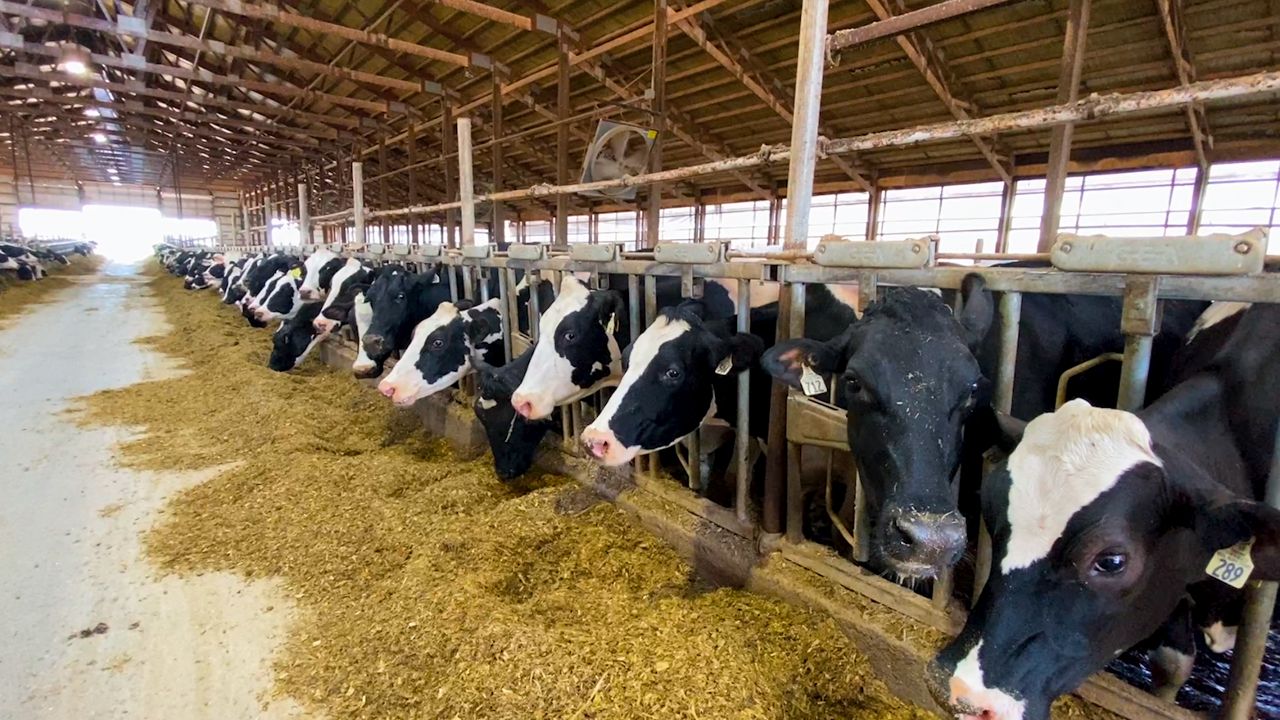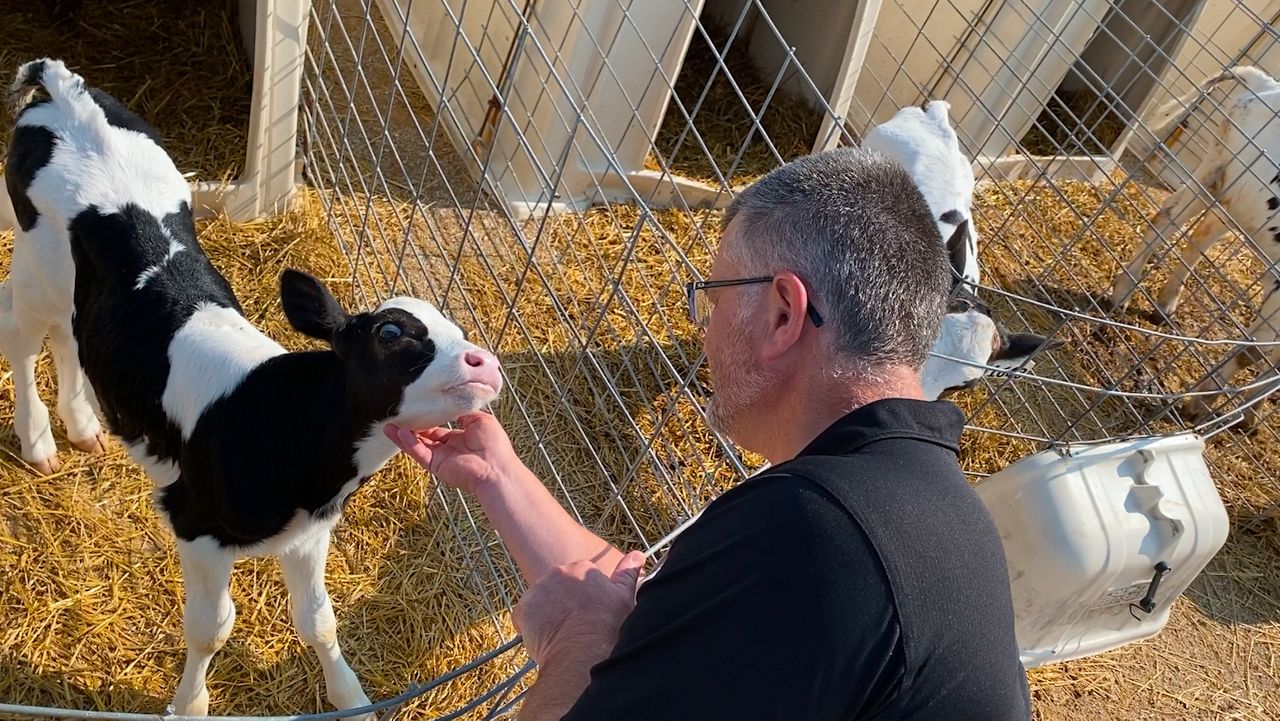BERLIN, Wis. — With a herd of 600 dairy cows, Kevin Krentz knows how other milk producers feel.
"Dairy farmers are hurting right now," said Krentz.
By the numbers, Krentz said farmers receive about $14-$15 for every 100 pounds of milk produced.
“But the cost of production is closer to $19 right now, so farms are struggling," said Krentz.
Krentz serves as the President of the Wisconsin Farm Bureau Federation. He said operation costs keep rising and farmers are feeling the heat.
“In Wisconsin, the biggest discussion is the drought and the dry weather and how that’s affecting crops. It’s amazing how well the crops look, but it’s significantly affecting yield," said Krentz.
Volatile prices are also making it hard for farmers to operate. If things don’t rebound, cows across the state will exit the herd, and possibly worse.
“We’re going to lose farms across the state of Wisconsin," said Krentz.

Leonard Polzin tracks dairy markets at the UW-Madison Division of Extension. He said the state is feeling the effects of a post-pandemic lag in milk demand.
“Total supply is up, and demand is down. We’re increasing inventory, cows keep producing every day, and we just can’t turn it off. Our inventory numbers of all dairy products are increasing, and buyers know that. Buyers are not hungry for product," explained Polzin.
Polzin said a world-wide economic slowdown also influences dairy buying decisions at the grocery store, which affects producers.
“So instead of choosing a more high-end or specialty cheese, they’ll trade down to an American cheese or similar product," said Polzin.
Krentz employs 17 workers at his farm and feels fortunate to stay fully staffed. However, he thinks milk processors have been hit by labor shortages which could factor into some milk dumping, which can be dangerous if not treated correctly.
“Agriculture’s a huge economic driver in Wisconsin. We’re a $105 billion business. Dairy’s about half of that at about $45 billion," said Krentz.

He spends time in Washington D.C., focused on the Federal Milk Marketing Order hearing, which helps set prices.
Also on his mind is the upcoming farm bill, which may provide more protections for farmers.
“We need to continue to build some safety nets. Whether that be the farm bill program or simply getting a fair price for our farmers through the Federal Milk Marketing Orders," said Krentz.
Farmers who opted into Dairy Margin Coverage, which protects farmers against prices getting out of line, will see some financial relief. Krentz said groups like the Wisconsin Farm Bureau need to improve at getting the word out to farmers about helpful programs.
Krentz said the impact of a farm as an economic engine going bankrupt reaches beyond the cow stalls and fields.
“I found that 62% of my expenses are spent within a 15-mile radius of this farm. That’s a huge impact," said Krentz. "We’re not located next to a large city, but it’s a huge impact on local communities across the state when you multiply that by the thousands of farms out there."
Polzin said every farming generation goes through one catastrophic year that reshapes the industry. Krentz and other dairy farmers hope this isn’t the year.










